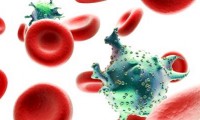-
Rheumatoid arthritis may raise COPD risk
- Source: medicalnewstoday
- 548
- October 27, 2017
-
Gemini Reels In $42M to Target Root Causes of Age-Related Blindness
- Source: Xconom
- 401
- October 25, 2017
-
KU Leuven researchers identify new rapid response mechanism against bacterial infections
- Source: news-medical
- 604
- October 24, 2017
-
Shingrix approved in the US for prevention of shingles in adults aged 50 and over
- Source: Gsk
- 619
- October 23, 2017
-
AbbVie and Harpoon Therapeutics Announce Immuno-Oncology Research Collaboration
- Source: finance.yahoo
- 684
- October 23, 2017
-
Britain backs GSK’s gene therapy for ‘bubble boy’ syndrome
- Source: reuters
- 820
- October 23, 2017
-
‘Synthetic gene circuit’ may improve effectiveness of cancer immunotherapy
- Source: medicalnewstoday
- 691
- October 20, 2017
-
Lilly and CureVac Announce Global Collaboration to Develop mRNA Cancer Vaccines
- Source: Finance
- 663
- October 20, 2017
your submission has already been received.
OK
Subscribe
Please enter a valid Email address!
Submit
The most relevant industry news & insight will be sent to you every two weeks.













